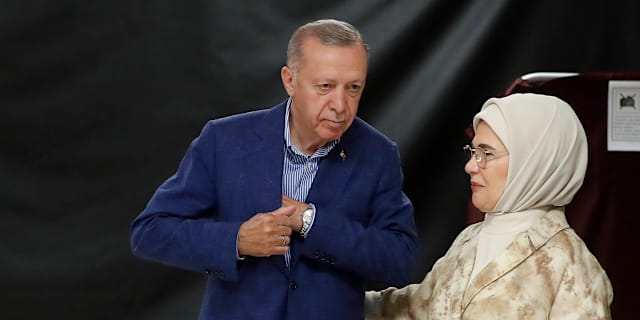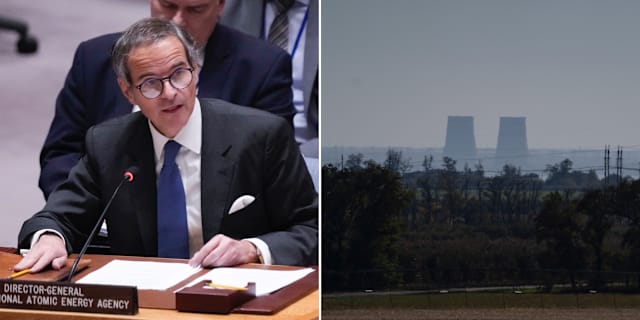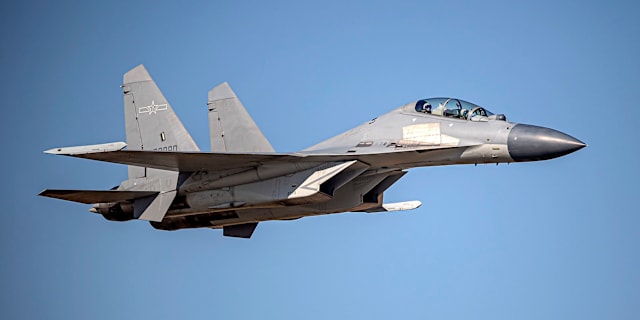Chinese J-16. Wikimedia Commons
The US-China relationship
USA: China aircraft flew in front of the nose of ours
A Chinese fighter jet carried out an "unnecessarily aggressive" maneuver against a US plane in international airspace over the South China Sea on May 26, the US military said, according to Reuters.
According to the US, the Chinese J-16 plane flew right in front of the nose of the US RC-135 plane, exposing it to turbulence.
In December, a similar incident occurred when a Chinese aircraft flew just three meters from an American one, forcing the American to take an evasive maneuver to avoid a collision.

President Recep Tayyip Erdogan with wife Emine. Murad Sezer / AP
Votes on the Turkish election
Analysis: West silently hoped the reign was over
Turkey's newly elected president, Recep Tayyip Erdogan, has neither Vladmir Putin's nuclear weapons, Narendra Modi's geopolitical influence, Benjamin Netanyahu's long track record, nor Viktor Orbán's allies in the American far-right. The Washington Post's Ishaan Tharoor notes this in an analysis.
But he has, on the other hand, succeeded in something that overshadows what the others have achieved: To leave such a clear mark on their nations.
"Few have managed to fend off electoral challenges with Erdogan's cunning and ferocity or succeeded in mobilizing a core constituency of religious and nationalist voters through an unrelenting culture war," writes Tharoor.
The final proof came when world leader after world leader - without uttering a word about the future of democracy in Turkey - called and congratulated the victory.
The Guardian's Patrick Wintour also lifts the silence from leaders in the West.
"[They] remained silent during the presidential election, quietly hoping that Erdogan's erratic rule would come to a surprising end," he writes.
Instead, Wintour believes, Erdogan has been handed a mandate that traps the West between fear and hope.

Rafael Grossi/Nuclear Power Agency. AP
The Russian InvasionThe Battles
IAEA: Pure luck that no nuclear accident has occurred yet
It is pure luck that no accident has so far occurred at the nuclear power plant in Ukraine's Zaporizhzhya during the war, Rafael Grossi, head of the UN Atomic Energy Agency IAEA, told the UN Security Council on Tuesday, according to the AP.
Grossi called on Ukraine and Russia to ban attacks from or against the power plant, as well as the stationing of military personnel or the storage of heavier weapons that could be used in an attack.
- If this continues, luck will eventually turn, he says.
The nuclear power plant was seized by Russia early in the full-scale invasion last February, and has since suffered a series of attacks and blackouts.

Inga kommentarer:
Skicka en kommentar